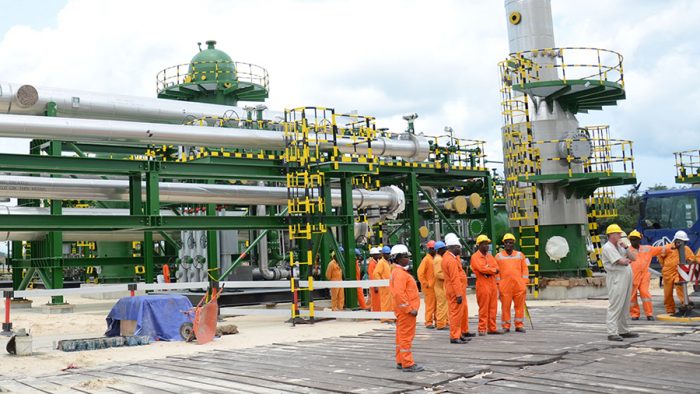Oil companies have taken major lead in the list of firms that have contributed to 32,000 bad loans that commercial banks have requested to be be restructured.
Majority of the loans, created by 17 commercial banks , went to energy companies affected by drop in crude oil prices due to the Coronavirus (Covid-19) pandemic.
In a note to Monetary Policy Committee (MPC) members, CBN Deputy Governor, Financial Systems Stability Directorate. Aishah Ahmad, said that at the end of May 2020, staff reports indicate that 17 banks submitted requests to restructure over 32,000 loans for individuals and businesses impacted by the pandemic, representing 32.94 per cent of total industry loan portfolio, with the manufacturing and general commerce sectors constituting the bulk of the restructured facilities.
Despite the need to restructure the loans, she insisted that the financial system remains a bright spot of the economy and is well positioned to support domestic output growth, and stimulate economic recovery.
“Even as the CBN monitors the potential risks to financial stability, it is gratifying that financial soundness indicators have remained strong, despite the headwinds and rapid expansion of credit (gross credit increased by N3 trillion between end-May 2019 and end-April 2020) driven by the Loan to Deposit Ratio (LDR) policy.
Non-performing loans (NPLs) ratio stood at 6.6 per cent at end April 2020, compared with 11.0 per cent at end April 2019, while other prudential ratios remain robust,” Ahmad disclosed.
Ahmad said results from ongoing impact assessment of Covid-19 effects on impairment by banks, indicate modest impact given regulatory policy measures already implemented. These, coupled with close monitoring by authorities and enhanced risk management practices by financial institutions, would help to mitigate the emerging risks and preserve financial system stability.
She said the coronavirus-induced global economic crisis is pervasive, with heightened uncertainty for the medium-term economic outlook. In Nigeria, early effects of the crisis and containment measures have reflected in modest decline in output growth, exchange rate depreciation, rising public debts and domestic prices amidst existing structural challenges.
“In my view, an aggressive move to reflate the economy should be the primary objective at this time. This can be partly achieved by lowering the policy rate to stimulate aggregate demand and direct credit to growth-enhancing sectors of the real economy. This measure would help lower domestic lending rates which have trended downwards due to increasing supply of loans via the LDR policy, expand access to credit, stimulate employment and improve domestic economic activity,” she added.



